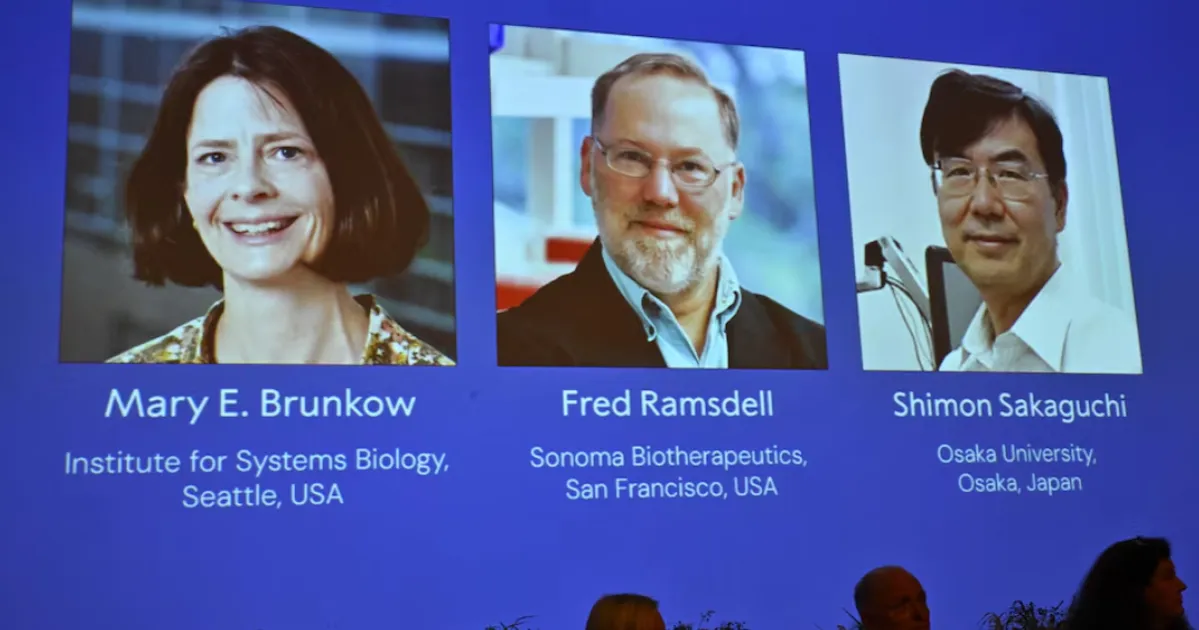
Brunkow, Ramsdell, Sakaguchi Win 2025 Nobel Prize in Medicine for Immune System Discovery

GeokHub
Contributing Writer
Three scientists — Mary E. Brunkow, Fred Ramsdell and Shimon Sakaguchi — have been awarded the 2025 Nobel Prize in Physiology or Medicine for their pioneering research into how the immune system prevents self-attack, a mechanism known as peripheral immune tolerance. Their work uncovered the role of regulatory T cells, which act as a balance in the immune system, restraining harmful immune responses while allowing protection against disease.
Their discoveries are seen as foundational. Brunkow and Ramsdell’s research identified how a defect in the FOXP3 gene leads to severe autoimmune conditions in mice and humans. Sakaguchi’s research showed how regulatory T cells work to maintain immune balance and prevent self-destruction by immune cells. Together, their findings open doors to better understanding and potentially treating autoimmune diseases and improving cancer therapies.
Mary Brunkow is based in Seattle at the Institute for Systems Biology, Ramsdell works as a scientific adviser in San Francisco, and Sakaguchi is a professor in Osaka. The Nobel Assembly at the Karolinska Institute selected them for their contributions to medical science. The laureates will share the prize money and receive the traditional medal and recognition.
Their award highlights one of medicine’s deepest challenges: how to enable the immune system to fight invaders and disease without turning against the body itself. Many in the scientific community hope this recognition will accelerate clinical applications built on their insights, especially for autoimmune disorders and immunotherapy.



























































































